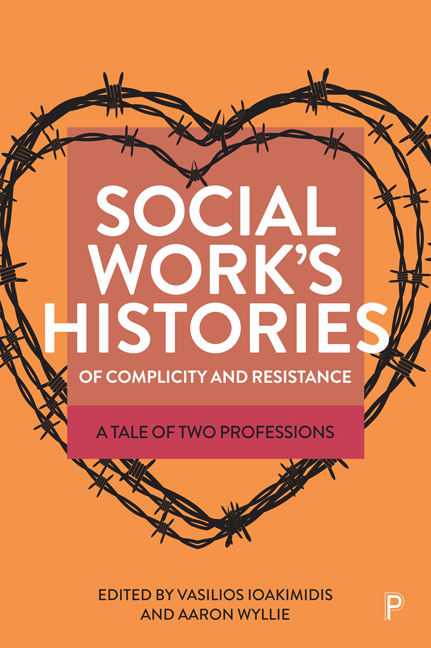Book contents
- Frontmatter
- Contents
- Notes on contributors
- Acknowledgements
- Preface
- Part I Making amends with the past
- Part II Legacies of colonialism and racism in social work
- Part III Social work’s contested ideologies
- Part IV Social work’s complicity with institutionalisation and detention
- Part V Survivor perspectives and contemporary reflections
- Index
13 - Institutionalisation of certain children and mothers in Ireland: reflections on the ‘troubled history’ of child welfare social work
Published online by Cambridge University Press: 20 January 2024
- Frontmatter
- Contents
- Notes on contributors
- Acknowledgements
- Preface
- Part I Making amends with the past
- Part II Legacies of colonialism and racism in social work
- Part III Social work’s contested ideologies
- Part IV Social work’s complicity with institutionalisation and detention
- Part V Survivor perspectives and contemporary reflections
- Index
Summary
Introduction
The premise of this book is that ‘by engaging with both the oppressive and resistant histories of the social work profession, this book aims to contribute to a more nuanced and fulsome account of our profession's history’. In this chapter, the role of Irish social work in relation to institutionalisation and mass incarceration is explored to contribute to this work. A history of the present perspective, derived from the work of Michel Foucault, scaffolds this work (Skehill, 2007). Such an approach recognises continuities and discontinuities between past and present in terms of ‘dominant’ and ‘minority’ discourses. It implies a view of history as a fluid and nebulous phenomenon that looks and feels differently depending on the perspective from which we view it. A history of the present approach rejects revisionism, whereby we judge the past from the vantage point of the present. It is an approach that facilitates the capturing of a complex and contradictory history that shows both positive and negative forces. Such an approach avoids defensivism, denial or blame and promotes critical constructive analysis of history which informs the present and the future.
The chapter begins with a brief note on the history of institutions for women and children in Ireland, directing the reader to sources to explore this theme in further depth, followed by a section focusing on the ‘received history’ of child welfare in Ireland. This is followed by a commentary on the Final Report of the Commission of Investigation into the Mother and Baby Homes (2021) (FRCIMBH) for illustration. A number of themes pertinent to the report are explored that impacted on the context of social work during the latter part of the 20th century. The discussion emphasises the importance of a critically informed historical perspective that captures the complex and contradictory nature of practice. It highlights the need for further critical analysis of the role of the social work profession in practices of institutionalisation and deinstitutionalisation that often led to systematic abuses, human rights violations, treatment of certain children and their mothers as objects of control rather than subjects of care and widespread evidenced abuse, neglect and discrimination, especially towards women who had children outside of marriage (‘unmarried mothers’) and their ‘illegitimate’ children.
- Type
- Chapter
- Information
- Social Work's Histories of Complicity and ResistanceA Tale of Two Professions, pp. 204 - 216Publisher: Bristol University PressPrint publication year: 2023

